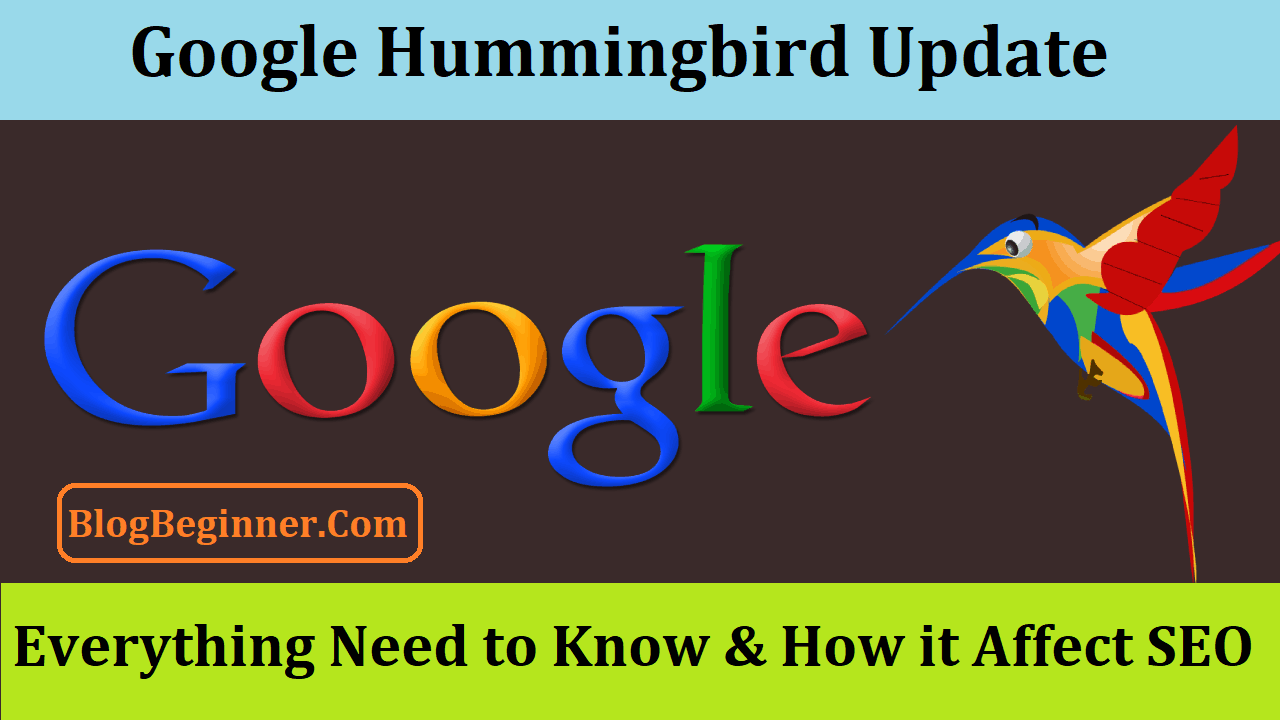Search engine optimization (SEO) is a vital part of online marketing. It is primarily based on assumptions, data, and experience.
When Google first released Google Panda, people made a lot of assumptions. Most of them gave up on recovering their websites from penalties. Nonetheless, there were still some who managed to completely recover their websites.
After some time, Google released the Google Penguin algorithm. It was developed to dismiss worthless backlinks as well as penalize sites that use unethical strategies to build links.
When the company realized that Penguin has resulted in negative SEO, they released the Google Disavow link tool. It allowed web masters to have incoming link control.
Contents In Page
The Google Hummingbird
Eventually, Google Hummingbird was released in September 2013.
This system is different from Google Penguin and Google Panda.
Google Penguin was meant to detect spam pages and devalue their links. Google Panda was meant to detect websites with low quality content and penalize them. Both of these updates are simply algorithmic tweaks.
Their existing algorithms were updated by Google to prevent low quality links and low quality pages from getting high rankings.
Google Hummingbird was meant to direct search engines towards a conversational approach instead of the traditional keyword-based one.
It was also developed to consider user intent whenever searches are performed.
This can significantly affect the ranking of websites.
However, unlike Google Penguin and Google Panda, Google Hummingbird is reward-based, not penalty-based.
This means that the websites that pass Hummingbird’s criteria get to have better rankings on the search engines. The other websites do not get affected at all.
For example, if you search for a certain image, Google will remember your data. So, the next time you search for something, Google will offer you options that match your intent and past search queries.
This is also due to the Google Knowledge Graph. Eric Enge of Stone Temple Consulting said that Google uses updates in non-knowledge graph queries to make the search much more intent-based.
In 2017, the updates for Google Hummingbird included the application of meaning technology to pages all over the World Wide Web.
It also included the effectiveness of long tail keywords and the quick recognition of keyword stuffing.
It also included the use of Knowledge Graph facts in order to ensure reliable search results.
Why Google Released a New Search Platform
New changes emerge every single day. Marketers know the importance of thinking about their customers as personas.
They are aware that they have to learn about their backgrounds and not just see them as paying individuals.
Google has realized the need to upgrade its algorithm in order to cater to the fast changing world. It understands that people have different marketing needs and that they expect to be catered to.
If you want to find out what steps you have to take, you have to understand the topics that online users are interested in.
You have to consider what they want in your marketing research as well as in your decision making.
You have to figure out how you can reach to your target customers through the content you upload. You have to find out how you can offer them the solutions that they want and need.
Even though keyword research is still fundamental, it has to be expanded into something more advanced.
Keyword research is simply a starting point to direct people towards the topics that they are looking for. Search marketers have to gather information and take further steps.
With the old SEO, Google finds out how it can rank for a query.
With the new SEO, however, it finds out how it can best answer the question that the user has. Basically, Google Hummingbird judges the intent behind the search and returns results that have a similar context.
Preparing Yourself for a Change
You have to adapt to the changing times if you want to stay relevant. For starters, you have to optimize your website for future searches as well as for Hummingbird.
Expect Google search to evolve continuously. You will continue to see changes, whether or not Google announces them. It is best to keep yourself updated by doing research and reading case studies. Here are some pointers to keep in mind:
-
Use relevant keywords in your content:
Primary keywords are important because they are what bring users to your website. However, you should not forget about LSI keywords because they are also helpful in boosting rankings. They can help your web pages get indexed by Google.
-
Keep an eye out for social signals:
There are tons of spam on the Internet. This is why search engines are careful to distinguish high quality pages from low quality ones.
They typically reward the previous and penalize the latter to yield better search results.
Aside from backlinks, Google also relies on social signals. Social media has become a huge part of daily life.
Each day, millions of people log into their social media accounts to connect and share data.
Your website can have a better ranking if it is popular on social media.
Hence, you should upload content that can attract a lot of viewers as well as encourage them to share such posts.
However, you should refrain from manipulating your data.
Some people think that they can easily game the system by purchasing “likes” on social media platforms such as Facebook and Google Plus.
While this works in some cases, you cannot rely on it to last a long time.
Eventually, Google will catch the websites that have suspicious or manipulated content. In the future, Google is highly likely to prioritize real profiles instead of profiles with plenty of “likes”.
If you want to be indexed by Google, you should work on building your profile instead of trying to increase the number of “likes” that you have.
Google Plus, in particular, is a great place to start because it is the official social networking site of Google.
The Benefits of Google Hummingbird
Mobile internet is such a vast domain. More and more people are performing voice searches on their smartphones. The future truly lies in mobile searches that are question oriented, and this is where Google Hummingbird comes in.
Google Hummingbird allows the search engine to process content in much better ways.
Most queries online are conversation-based.
This is mostly due to the fact that a lot of people have transitioned from desktop and laptop computers to mobile devices. They want to stay connected, but they also do not want to be stuck in the same place.
Since conversational searches have become increasingly popular, Google has had to keep up.
It launched Adwords Enhanced Campaigns, which are about managing mobile ad campaigns. It also launched Google Now, which is a mobile search personal assistant.
Moreover, it launched Answer cards in Google search, wherein search results are laid out like cards.
Google has become akin to a personal secretary. It keeps track of your data in your Google Drive, Gmail, Google Plus, and other accounts.
Google Hummingbird reflects this approach and yields results based on geo-location, key phrase search intent, etc. It also provides answers to longer and more complex questions.
For example, users simple enter keywords or key phrases to find what they are looking for.
When you wanted to search for a restaurant in New York, you simply had to type “restaurants in New York” and you will be given a list of restaurants.
Today, you can type an entire question such as “where to find the best restaurants in New York?” to get a more specific answer.
Google Hummingbird can be regarded as a brand new way to search the Web.
It allows for a natural conversation between Google and online users.
It does not restrict search to ideas and terms. It allows the use of question words such as why, how, when, and where.








